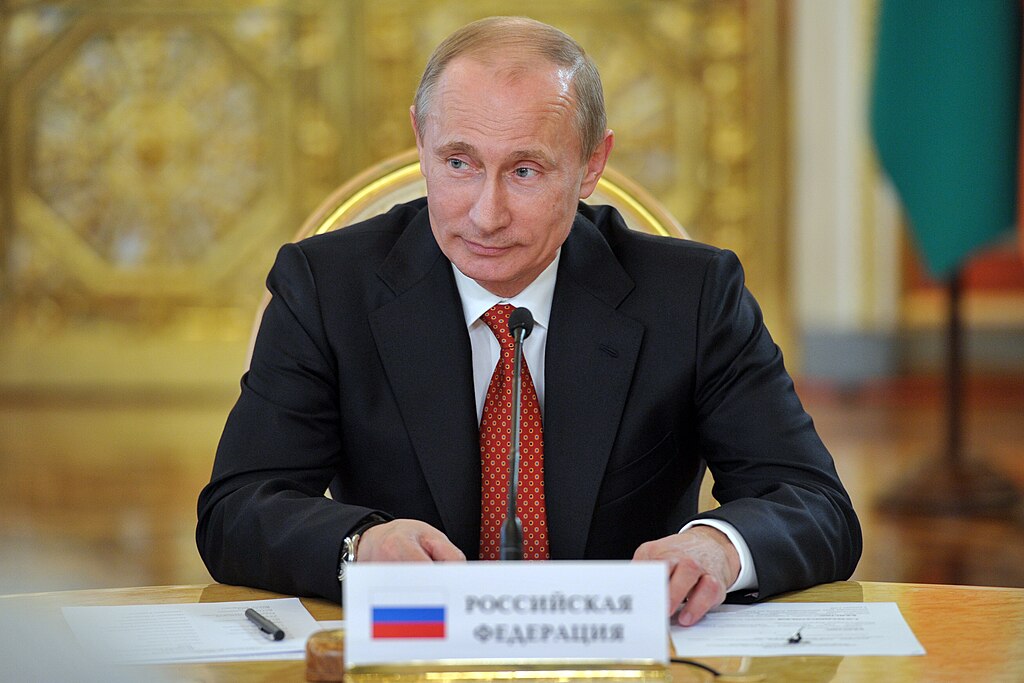Russian President Vladimir Putin has signed a controversial decree broadening the conditions under which the country could deploy nuclear weapons, raising alarm among global leaders and sparking widespread criticism. The decision, announced in Moscow, underscores a growing shift in Russian defense policy and intensifies fears of escalating international conflicts.
Expanded Nuclear Policy Raises Eyebrows
The decree, which reportedly allows for nuclear weapons to be used not only in direct defense but also in scenarios deemed to pose a broader existential threat to Russia, is a significant departure from previous Russian military policy. The Kremlin cited "increased external aggression" as the primary rationale behind the policy shift, though critics argue it reflects a more aggressive posture in the face of heightened global tensions.
Analysts believe this move signals an effort to bolster deterrence amid strained relations with the West, exacerbated by ongoing geopolitical conflicts, including the war in Ukraine. With NATO expanding its presence in Eastern Europe and military exercises near Russia's borders, Moscow appears to be doubling down on its nuclear strategy.
A Global Outcry
The international response to Putin's decree has been swift. Western powers, including the United States and its NATO allies, have condemned the move, warning it could destabilize global security and spark a renewed arms race. U.S. Secretary of State Antony Blinken called the policy shift "reckless and destabilizing," urging the Kremlin to adhere to existing arms control agreements.
China, often seen as a strategic ally to Russia, has remained notably silent on the matter, fueling speculation about Beijing's stance on the controversial decision. Meanwhile, the United Nations has called for an emergency session to address the implications of Russia’s expanded nuclear policy.
A Potential New Arms Race
The decree has reignited fears of a Cold War-era arms race. Experts warn that Russia's policy change could prompt other nuclear-armed nations to revise their own doctrines, potentially lowering the threshold for the use of nuclear weapons globally.
"By broadening the scope for nuclear use, Russia is setting a dangerous precedent," said Dr. Jane Thompson, a nuclear policy expert. "This could lead to a domino effect where other nations feel compelled to expand their nuclear capabilities and strategies in response."
Domestic Reaction and Propaganda
Within Russia, state-controlled media have lauded the move as a necessary step to ensure national security in an increasingly hostile global environment. However, dissenting voices within the country have expressed concern over the potential consequences of such a provocative policy.
Critics argue that the Kremlin’s decision is less about defense and more about projecting power on the world stage. The decree could also serve as a political tool to rally domestic support amidst growing economic challenges and waning public approval for Putin’s leadership.
The Path Forward
The international community now faces the daunting challenge of addressing the implications of Russia’s decree. Diplomatic efforts to mitigate the risk of nuclear escalation are expected to dominate upcoming global security talks, though it remains unclear whether Moscow is open to negotiation.
With tensions already running high, Putin’s decree marks a pivotal moment in international relations, signaling a new phase of uncertainty and danger in global geopolitics.



 EU Urges Maximum Restraint in Iran Conflict Amid Fears of Regional Escalation and Oil Supply Disruption
EU Urges Maximum Restraint in Iran Conflict Amid Fears of Regional Escalation and Oil Supply Disruption  HHS Adds New Members to Vaccine Advisory Panel Amid Legal and Market Uncertainty
HHS Adds New Members to Vaccine Advisory Panel Amid Legal and Market Uncertainty  Pentagon Leaders Monitor U.S. Iran Operation from Mar-a-Lago
Pentagon Leaders Monitor U.S. Iran Operation from Mar-a-Lago  Israel Launches Fresh Strikes on Iran After Death of Supreme Leader Ayatollah Khamenei
Israel Launches Fresh Strikes on Iran After Death of Supreme Leader Ayatollah Khamenei  Trump Launches Operation Epic Fury: U.S. Strikes on Iran Mark High-Risk Shift in Middle East
Trump Launches Operation Epic Fury: U.S. Strikes on Iran Mark High-Risk Shift in Middle East  Marco Rubio to Brief Congress After U.S.-Israeli Strikes on Iran
Marco Rubio to Brief Congress After U.S.-Israeli Strikes on Iran  Middle East Conflict Escalates After Khamenei’s Death as U.S., Israel and Iran Exchange Strikes
Middle East Conflict Escalates After Khamenei’s Death as U.S., Israel and Iran Exchange Strikes  Zelenskiy Urges Change in Iran After U.S. and Israeli Strikes, Cites Drone Support for Russia
Zelenskiy Urges Change in Iran After U.S. and Israeli Strikes, Cites Drone Support for Russia  Australia Rules Out Military Involvement in Iran Conflict as Middle East Tensions Escalate
Australia Rules Out Military Involvement in Iran Conflict as Middle East Tensions Escalate  U.S. Deploys Tomahawks, B-2 Bombers, F-35 Jets and AI Tools in Operation Epic Fury Against Iran
U.S. Deploys Tomahawks, B-2 Bombers, F-35 Jets and AI Tools in Operation Epic Fury Against Iran  U.S. Lawmakers Question Trump’s Iran Strategy After Joint U.S.-Israeli Strikes
U.S. Lawmakers Question Trump’s Iran Strategy After Joint U.S.-Israeli Strikes  Pakistan-Afghanistan Tensions Escalate as Taliban Offer Talks After Airstrikes
Pakistan-Afghanistan Tensions Escalate as Taliban Offer Talks After Airstrikes  Trump Announces U.S. Strikes on Iran Navy as Conflict Escalates
Trump Announces U.S. Strikes on Iran Navy as Conflict Escalates  Netanyahu Suggests Iran’s Supreme Leader Khamenei May Have Been Killed in Israeli-U.S. Strikes
Netanyahu Suggests Iran’s Supreme Leader Khamenei May Have Been Killed in Israeli-U.S. Strikes  Australian PM Calls Alleged Western Australia Terror Plot “Deeply Shocking” After Arrest
Australian PM Calls Alleged Western Australia Terror Plot “Deeply Shocking” After Arrest  UK Accepts U.S. Request to Use British Bases for Defensive Strikes on Iranian Missiles
UK Accepts U.S. Request to Use British Bases for Defensive Strikes on Iranian Missiles  Trump Warns Iran as Gulf Conflict Disrupts Oil Markets and Global Trade
Trump Warns Iran as Gulf Conflict Disrupts Oil Markets and Global Trade 































